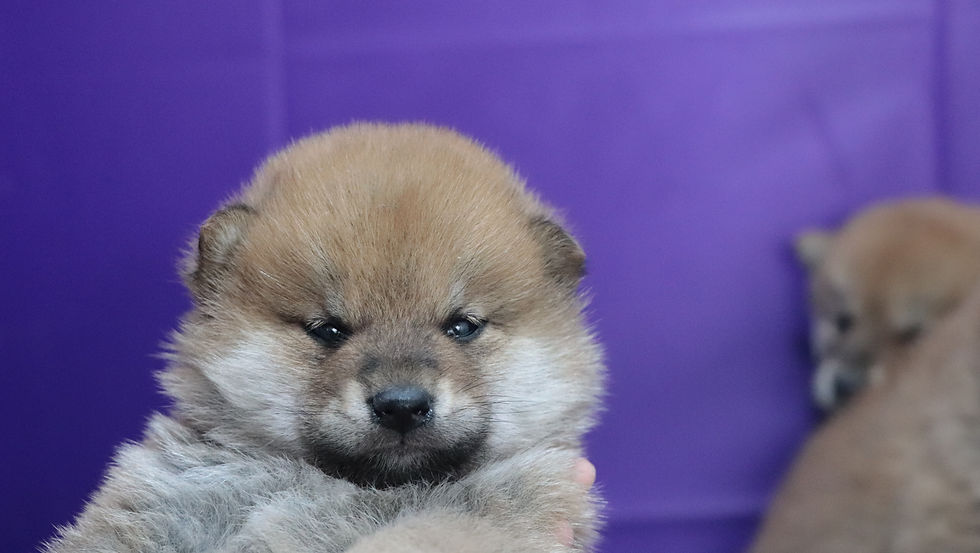Shiba Inu’s Tail
- Aug 27, 2020
- 2 min read

Shiba Inu's tail is important and represents the characteristics of this breed.
Generally speaking, "standing ears and curled tail" is one of the major common characteristics of Japanese dog.
The way a dog's tail moves reveals the dog's emotions and mental strength, and is a good guide to grasp the dog's condition.

At Japanese dog show, dogs with thick and powerful tail get a better reputation.
On the other hand, a dog that keep its tail tucked under its belly will be reputed as a coward which lacks mental strength and "Kanni"(悍威).
There are two types in Shiba Inu’s tail, “standing tail” and “curled tail”.
It's not that either tail is better than the other, it's just a matter of preference.
However, at the dog show, there are regulations about tail according to the size of each dogs, and in the large size Japanese dogs category, only "curled tail" is evaluated.
For small Japanese dogs such as Shiba Inu, standing tail and curled tail are evaluated equally at the dog show.

As a side note, very few Japanese dogs originally have a standing tail.
It is said that a Shiba Inu's tail should be curving naturally from the line of its spine and rolled just enough that a chicken egg can fit inside.
Unnatural curvature from the base of the tail, double-rolled, or unnatural bouncing of the front of the tail are considered undesirable in the dog show.
Regarding the length of the tail, it should be just long enough to bring the tip of the tail to about the middle of the hind legs when the tail is hanging down. But, in practice, most of the tails are a little shorter than that and there is no problem with that However, if the tail is too long, it looks strange, and if too short, it looks unnatural, and such tails will inevitably be rated low.





Comments